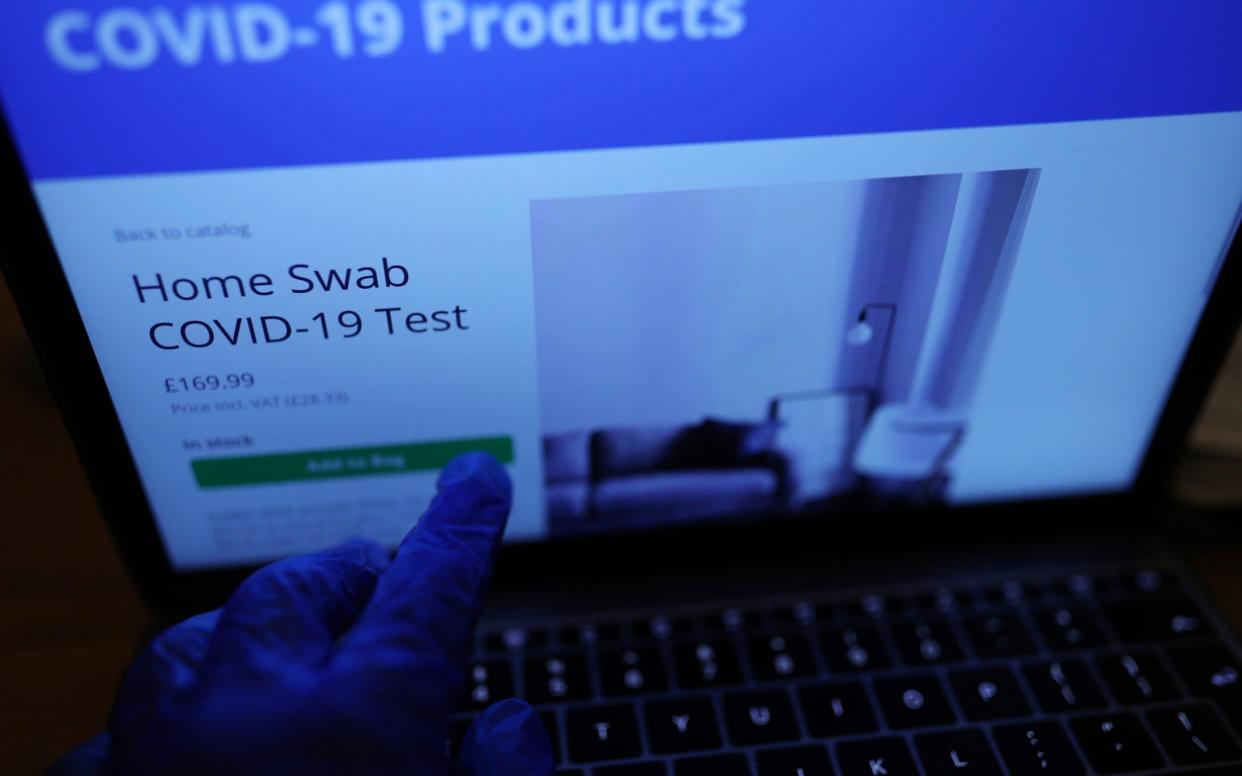Rishi Sunak drops plans to force employees to pay for coronavirus tests


Chancellor Rishi Sunak has dropped controversial plans to force workers to pay for coronavirus tests organised by their employers through their tax returns, on the eve of his coronavirus "mini-Budget".
HMRC guidance published this week had made clear that employees will face a taxable benefit in kind for private tests carried out in the workplace.
The decision would have meant that an employee could see their take-home pay cut by more than £3,000 per year if they have to be regularly tested, according to calculations seen by The Telegraph.
The decision immediately raised fears that people will be put off from testing to avoid being left out of pocket. MPs said treating a coronavirus test as a workplace "benefit" was "a joke".
However, on Tuesday, within hours of Tory Treasury select committee chairman Mel Stride writing to Mr Sunak to complain about the plans, the Treasury dropped them late on Tuesday night, on the eve of Mr Sunak's statement to MPs about his plans to support the economy through the coronavirus crisis.
The guidance had said: "Coronavirus (Covid-19) testing kits or tests carried out by a third party which have been purchased by you to provide to your employees, are treated as a taxable benefit in kind on the employee."
This had meant that a cash value will be assigned to the coronavirus test by the employer, and the employee will pay Income Tax on this amount through Pay As You Earn (PAYE).
Mr Strid said: “Many of our key workers could be faced with the perverse incentive of avoiding employer-sponsored tests in order to reduce their tax bill.
“This can't be right. I’ve asked the Chancellor to look into this as soon as possible.”
Layla Moran, the Liberal Democrat leadership contender, added: "We cannot have a system where you pay tax as you test.
"The government cannot class a vital health test as a 'benefit', and the idea that this is a perk for an employer or employee is a joke."

People who fill out a self-assessment tax return would have had to declare the cost of any tests on it.
Some frontline workers are now being tested as often as once a week. The tests can cost £150 each which means that privately testing one employee every week for a year could cost £7,800.
A higher-rate taxpayer earning £60,000 would pay income tax of 40 per cent on this, equal to a total of £3,120 over the year, according to calculations by wealth manager Quilter.
Someone making £30,000 a year, paying the lower rate of income tax, would face a 20 per cent charge (£1,560).
Before the U-turn was announced, Quilter’s Rachael Griffin said: “It’s unclear whether this was a snap decision made without thinking through the consequences or a money-making ploy."
Tim Stovold of accountancy firm Moore Kingston Smith added: “It is absurd that HMRC should collect tax on employer provided kits. It just creates another barrier to getting people back to work.”
Late Tuesday night a Treasury spokesman said: "Given the importance of widespread testing, we want to ensure that all employers who wish to provide third-party testing to their employees can do so without increasing their tax liability.
"So, we will introduce a new income tax exemption for Covid-19 antigen tests provided by employers. HMRC will amend its guidance as soon as possible to reflect this change.”
A source added: "As most workers will already be able to access tests for free through the NHS, we expect the new exemption to only impact a small number of individuals.
"The exemption will be in effect for any tests which have taken place during the current tax year 2020-21.


